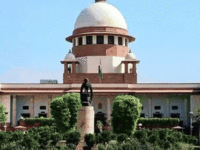
The Congress party expressed concern that this ruling might dilute the reservation system and potentially pave the way for the introduction of a 'creamy layer' concept within the SC category. This concept, which currently applies to Other Backward Classes (OBCs), excludes the wealthier and better-educated members of the OBCs from reservation benefits. Congress leaders have pointed out that implementing such a measure within the SC quota could lead to further marginalization of the most vulnerable sections of society.
Chirag Paswan, leader of the Lok Janshakti Party (Ram Vilas), also voiced his opposition to the ruling. He argued that creating sub-groups within the SC quota would not effectively address the issues faced by the most socially marginalized groups, particularly those still experiencing untouchability. Paswan announced his party's intention to appeal the Supreme Court's decision, emphasizing the need for a unified approach to SC reservations.
The ruling has also raised questions about the broader implications for reservation policies in India. Critics of the decision argue that it could lead to a fragmentation of the SC community, weakening their collective political and social power. Moreover, they warn that the introduction of a 'creamy layer' within the SC quota could reduce the effectiveness of affirmative action programs designed to uplift the most disadvantaged communities.
Supporters of the ruling, however, argue that it is a necessary step to ensure that the benefits of reservations reach the most marginalized groups within the SC category. They contend that the current system often benefits more dominant sub-castes within the SC category, leaving the most deprived sub-castes without adequate representation or resources.
The Supreme Court's decision comes at a time when the issue of caste-based reservations is under intense scrutiny. The debate over the ruling is likely to continue, with political parties and social organizations weighing in on its potential impact on India's complex reservation system. As the country grapples with issues of social justice and equality, the fallout from this ruling could shape the future of affirmative action policies in India.
